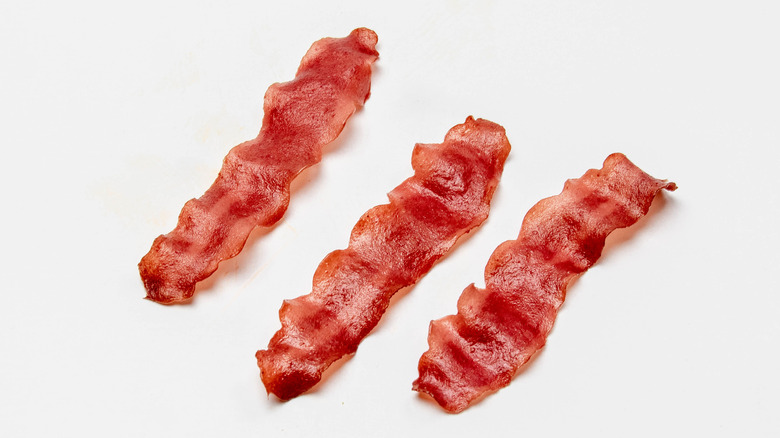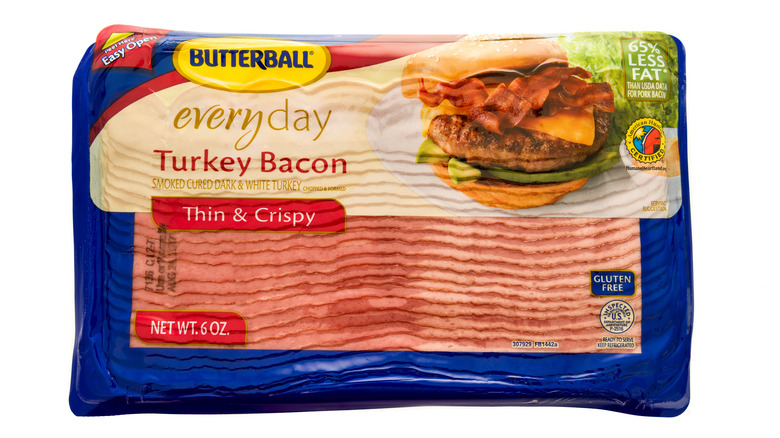How Turkey Bacon Is Really Made
Thanks to the wide range of consumer tastes, companies are constantly experimenting to create new products to satisfy their clients. One example? According to Meat+Poultry, turkey bacon has been around since the 1980s, and its popularity shows no signs of dwindling. While some people opt for turkey bacon because they do not eat pork, others choose it with the belief that it's a healthier alternative. On the downside, however, dietitian Laura Jeffers points out that turkey bacon gives the illusion of being a healthy option while in fact, it isn't necessarily much better (via Cleveland Clinic).
Traditional bacon is made from the fatty area of the pork belly, but the same can't be said about turkey bacon. Healthline explains that turkey bacon is generally made using a mix of chopped up light and dark turkey meat, as well as the skin. Verywell Fit adds that turkey bacon can also be made using only dark meat. The different parts are combined with seasonings, oil, and preservatives, and then shaped into a mass that is later sliced (via Healthline). As well, Cooks Info indicates that some manufacturers might add pork fat to improve the flavor and texture, since turkey can be a bit dry. Other brands incorporate liquid smoke for flavor, or the meat might actually be smoked, to increase the complexity of the taste (via Cooks Info).
Should you choose turkey bacon instead of pork?
Although Healthline points out that some producers use the two colors of meat to create streaks to imitate the look of classic pork bacon, it's pretty hard to mistake turkey bacon for the real deal. Butterball, the original turkey bacon, lists turkey and water as its primary ingredients, followed by salt, sugar, oils, flavoring, and preservatives. Different brands of turkey bacon have varying ingredients and nutrition profiles, but in general, they all contain high levels of saturated fat and sodium (via Verywell Fit). Even though the calorie count is slightly lower than pork bacon, Cleveland Clinic reports that the protein content is also decreased, which means that the same portion size might be less satiating.
If you want to keep enjoying turkey bacon as part of a healthy diet, consume it sparingly and choose low sodium options if possible. Since there can be a significant difference, depending on the brand, comparing the nutrition profiles and ingredients is a good way to make an informed decision. Another option is to choose turkey bacon made by small-scale producers such as True Bites, a family butcher that simply salts and cures the turkey meat before slicing it to sell.

